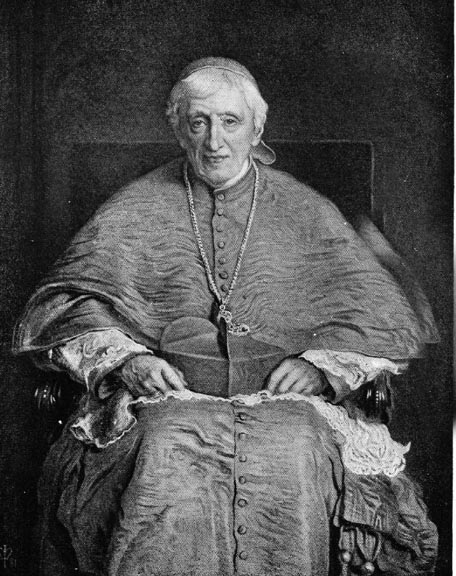Another post from Buzz Kriesel - leader of the Misfits:
Dear Misfits,
Blessed John Henry Newman’s novel, Loss and Gain: The Story of a Convert, was a very inspirational read. In some respects, it could be termed a primer on conversion as well as one of the strongest apologetics in defense of the Faith. It could also be given the title of “Contra Protestantism” as it refutes in detail, all of the claims of the protestant faith, particularly that of Anglicanism. One Misfit noted that the style used by Cardinal Newman was “Socratic” in that each of the characters raised a question and then another answered with arguments or logic that supported the central theme of the novel...the Catholic Church is the true Church and salvation is through the Church.
The claims made by Cardinal Newman in 1874 in support of the Catholic Faith contra the Anglican Church are as true today as they were those many years ago. Cardinal Newman’s beatification was officially proclaimed by Pope Benedict XVI on 19 September 2010 during his visit to the United Kingdom. The tide has turned and the faith is again growing in England as the Anglican Church continues it’s decline. It is significant that the Holy Father has created a new Ordinariate (Personal Ordinariate of Our Lady of Walsingham) to accommodate all of the Bishops and Priests the Church is gaining as Anglican clergy leave the Anglican Church. I believe that anyone who reads Loss and Gain will fully understand why this is occurring. It surprises me that it has taken so long!
Now to the future:
February’s book is by Dorothy Sayers. We have been talking about reading her for many years. We have chosen to read Unnatural Death, originally published in 1927. This is the third of Dorothy L. Sayers’ "Lord Peter Wimsey" mystery novels and is regarded as one of the best in this excellent series. In the story, a wealthy old woman is found dead, a trifle sooner than expected. An intricate trail of horror and the senseless murder leads from a beautiful Hampshire village to a fashionable London flat and a deliberate test of amour as staged by the debonair sleuth, Lord Peter Wimsey. "Here the modern detective story begins to come to its own; and all the historical importance aside, it remains an absorbing and charming story today."
March’s book is a return to horror...classic horror! We have, by popular demand, decided to read Bram Stoker’s Dracula. (I think our recent reading of Frankenstein has given us a taste for the macabre.) One reviewer sums the book up thus: “Count Dracula has inspired countless movies, books, and plays. But few, if any, have been fully faithful to Bram Stoker's original, best-selling novel of mystery and horror, love and death, sin and redemption. Dracula chronicles the vampire's journey from Transylvania to the nighttime streets of London. There, he searches for the blood of strong men and beautiful women while his enemies plot to rid the world of his frightful power.”
April-December. I think this is going to come as a welcome surprise to those of you who weren’t at the meeting last Wednesday evening. We canceled The Old Man and the Sea in favor of reading what many claim to be the greatest work of Catholic literature ever written! We have decided to read Dante’s Divine Comedy. It will take us nine months to accomplish the challenge. We are going to use the three volume Penguin Edition of Dorothy Sayers highly regarded translation of the Divine Comedy. (This will give us a common point of reference for our discussion of the books.) We will read the Divine Comedy in the following manner:
April-June: The Divine Comedy, Part 1: Hell (Penguin Classics) - Paperback (June 30, 1950) by Dante Alighieri and Dorothy L. Sayers. There are 33 Cantos in the book so we will read and discuss 11 Cantos each month (about 75 pages each month).
July-September: The Divine Comedy, Part 2: Purgatory (Penguin Classics) (v. 2) - Paperback (Aug. 30, 1955) by Dante Alighieri, C. W. Scott-Giles, and Dorothy L. Sayers. Again, there are 33 Cantos so we will read and discuss 11 Cantos each month (about 100 pages each month).
October-December: The Divine Comedy, Part 3: Paradise (Penguin Classics) (v. 3) - Paperback (July 30, 1962) by Dante Alighieri, Dorothy L. Sayers, and Barbara Reynolds. There are 33 Cantos in each book so we will read 11 Cantos each month (approximately 125 pages each month). We are also fortunate to have Misfit Loome help us with our reading of The Divine Comedy. He taught several university courses in Dante in years past. He declares that it is unquestionably one of the greatest works of Christian literature , if not world literature, ever written.
Warmest regards,
Misfit Buzz
Share |

No comments:
Post a Comment